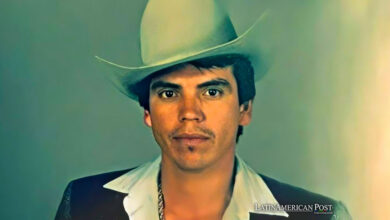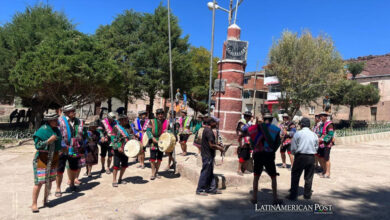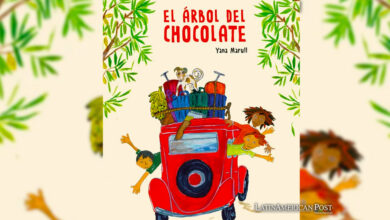Unlocking Ancient Wisdom at The Bolivian Andean School of Spiritual Guides
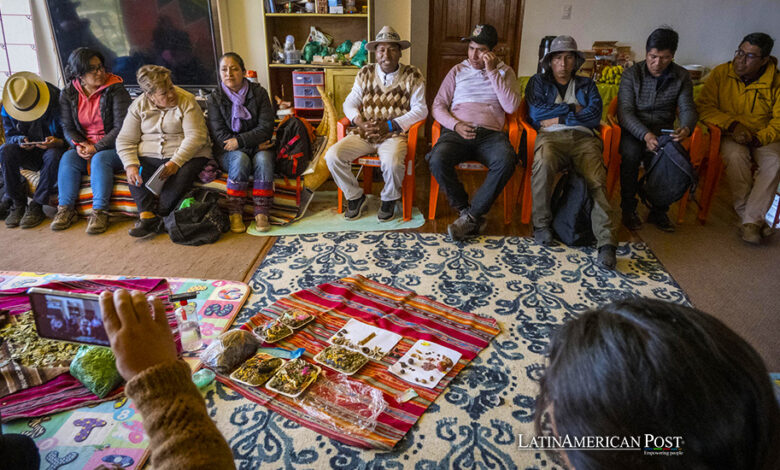
Nestled in the rural municipality of Achocalla, just 17 kilometers southwest of La Paz, a group of dedicated individuals gathers in a partially constructed house every Sunday. They come together to receive instruction from Manuel Alvarado, the director of Paka-Illa, a center devoted to studying Andean oral history and ancestral medicine, which houses the ‘School of Ancestral Wisdom.’ It is the first of its kind in the country.
Unveiling Andean Wisdom
A pile of leaves takes center stage inside a small room adorned with a colorful ‘aguayo,’ a handwoven multicolored textile intrinsic to Andean cultures. This simple arrangement holds a profound purpose – facilitating dialogue and equilibrium among attendees.
Alvarado passionately asserts, “Our sole purpose is to share wisdom.” In stark contrast to other institutions, they do not charge a single cent for their teachings.
But who are these individuals drawn to this unique school, and what sets them apart? According to Alvarado, only some are called to become a sage. Only those marked by birth are destined for this path. Upon entering this journey, individuals must disclose their unique gifts, which are the foundation for imparting knowledge about the universe, animals, and plants. This knowledge is not for personal gain but for the betterment of humanity.
Ego Taming and Willing Learning
The school director emphasizes the importance of taming one’s ego and attachments. Those who wish to tread this path must be willing to learn.
Humberto Flores, a self-proclaimed “spiritual guide,” attests that despite completing his formal education, his learning continues through communication with nature and fellow beings. The wisdom he has acquired is not found in textbooks but is a tradition passed down from generation to generation through oral transmission.
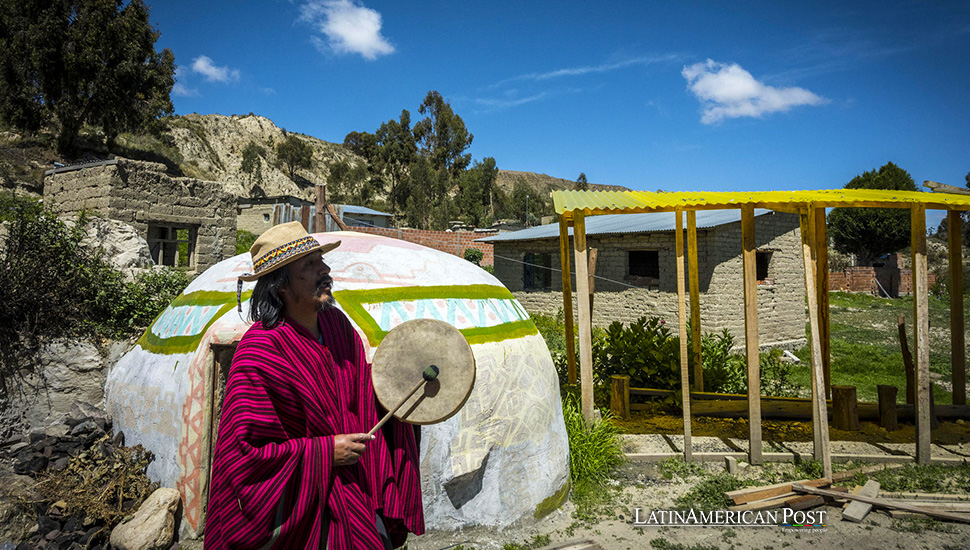
Central to their practices is the role of coca leaves in interpreting various aspects of life. The reading or dialogue with coca leaves is based on factors such as geographic location, the shape of each leaf, and its position.
Their knowledge extends to medicinal plants harvested from the highlands and mountains. According to Flores, these plants are used to administer treatments that improve the quality of life or offer complete healing, particularly in cases of serious illnesses, without conflicting with modern scientific medicine.
Ancestral Traditions in Bolivian Culture
Bolivia’s recognition of the wisdom and ancestral traditions of Andean cultures is reflected in its official ceremonies. Rituals, including incense offerings and tables laden with offerings to Pachamama or Mother Earth, accompany the inauguration of significant projects. They are also integral to national celebrations like the Plurinational State Day on January 22nd and the winter solstice observed on June 21st.
On the medical front, the Bolivian government has established a Deputy Ministry of Traditional and Intercultural Medicine, along with a national law regulating practitioners in this field, which has been in effect since 2013.
Also read: Health Authorities Confirm that the ‘JN.1’ Variant of COVID-19 is Circulating in Colombia
Last October, the government announced the construction of a medicine factory incorporating traditional knowledge. This initiative draws on the expertise of over 1,700 medicinal plants in the country, reaffirming the significance of ancient wisdom in modern times.
As the ‘School of Ancestral Wisdom’ continues to flourish, it remains a beacon of hope, preserving and disseminating the timeless Andean knowledge that fosters harmony between humanity and the natural world. This institution stands as a testament to the enduring relevance of ancient traditions in our rapidly changing world, reminding us that wisdom transcends time and borders.

